There is no one path to becoming a college tennis coach. A lot depends on your goals and desire to become a full-time college coach. The term “college tennis coach” encapsulates several different positions in all five division of collegiate tennis — NCAA Division I,II,III, Junior College and NAIA.
Below are titles that currently exist in the college tennis coaching profession:
- Head Women’s Coach
- Head Men’s Coach
- Head Men’s & Women’s Coach
- Director of Tennis
- Coordinator of Tennis
- Assistant Coach
- Volunteer Assistant Coach
- Graduate Head Coach
- Graduate Assistant Coach
Not all of these roles are full-time positions offering competitive salaries and benefits. Coaching is very much a labor of love and it may take some time to find a full-time role that provides for you and your family. A number of coaches supplement their income through coaching tennis lessons on the varsity courts or at a local club.
College coaches are an eclectic group of tennis enthusiasts. Some coaches played at the highest levels of professional tennis while others struggled to make the line-up of their high school tennis team. It doesn’t really matter how well you played the game– what matters is your ability to communicate with people on and off the tennis court, your desire to make a difference in the lives of those you coach, and your commitment to learning and excellence. The coaches who competed at the highest levels of the game soon recognize that their playing credentials will only get them so far in this competitive industry.
Typically, a college coach needs to hold the following prerequisites to be considered for a college coaching position:
- College tennis playing experience
- An undergraduate degree from an accredited college or university
Obviously, there are exceptions to every rule, but these are a good starting point. Every experience or credential you possess beyond these two prerequisites is a bonus and not necessary for entry into the profession.
The path to becoming a head coach is varied. Head coaches at major programs have started their careers as volunteer graduate assistants. While others began in a completely unrelated field, but made the move into college coaching later in their professional life. Some coaches have left the profession only to come back to it a few years later. Others have remained lifelong assistants. College coaches have also come from the high school coaching ranks or from a tennis academy. The list is endless.
Recently, an increasing number of programs are seeking out volunteer coaches to join their coaching teams. You can always find a list of advertised positions on the ITA Classifieds page. However, there are also a lot of paid positions or graduate roles that might be a strong starting point for your coaching career. Due to the nature of college athletics, the turnover rates tend to be relatively high compared to many traditional industries.
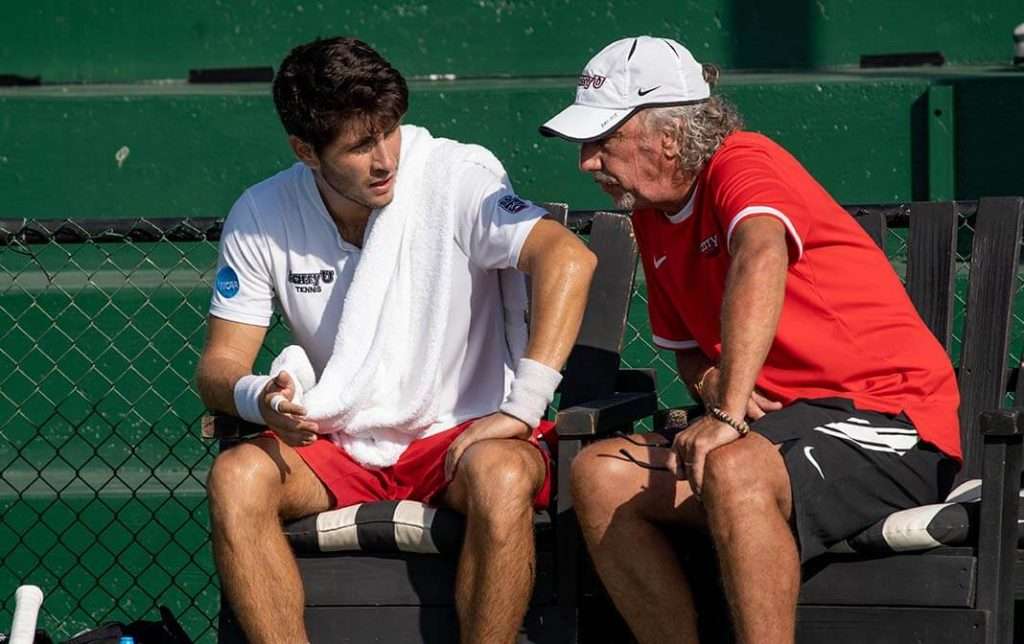
College coaching entails a lot more responsibility then what you may have witnessed as a student-athlete.
You saw your coaches at practice every day, during matches, road trips and a few other events throughout the year. What you did not see was the never-ending recruiting process, the fundraising, the community engagement, the compliance, the sometimes endless meetings, and many other duties that are unseen by student-athletes. Player development is just one small part of the job! However, most coaches report that they would not want to do anything else with their professional lives and absolutely love their roles.
Although there are only a few barriers to entering this profession, in order to get started and advance your career you may want to consider adding some of the following items to your resume.
- USPTA/PTR or equivalent coaching certification
- USTA High Performance coaching certification
- Master’s degree in sports science/communications/marketing
- High performance coaching experience
- Connections with high performance coaches in the USA & abroad
- Demonstrated leadership abilities
- Demonstrated sportsmanship
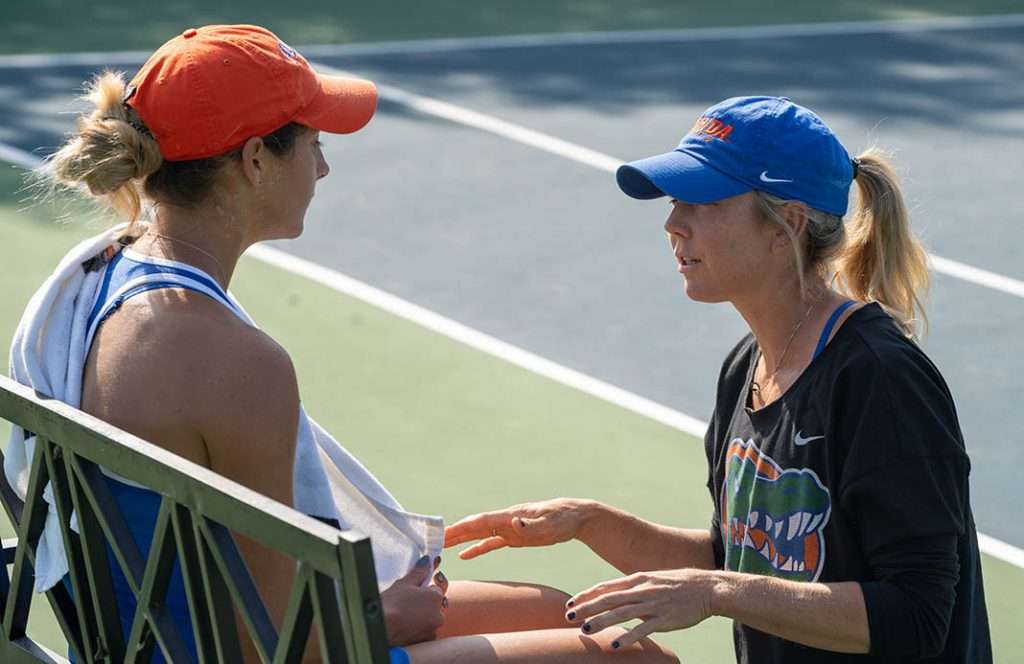
If you are not sure where to get started, contact your former head coach or assistant coach. If they are no longer coaching, maybe there is a coach who recruited you as a junior or a coach you remember competing against during your college playing days. Visit your local Junior College, NAIA or NCAA program and see if there is any way that you can help their program. Have your resume on hand and stay in touch with the contacts that you make. You never know when an opportunity might present itself.
Many coaches run summer camps and are always looking for good coaches to work the camps. Some coaches seeking entry into the college coaching industry have worked these camps in order to network with coaches and learn what they can from them over the course of a week or two.
Learn everything you can about the college tennis profession. Seek out advice from coaches and read and listen to anything you can get your hands on. The ITA College Tennis Coaches Podcast is designed to assist coaches with their peer-to-peer learning. You can also find articles and interviews with college tennis coaches on the ITA website, the Tennis Recruiting website, and the Cracked Racquets website.
The ITA recently launched the ITA Coach Masterclass as a hub for all coach education material. The second chapter is now available.
The best of luck on your journey to becoming a college tennis coach.
David Mullins
ITA Managing Director

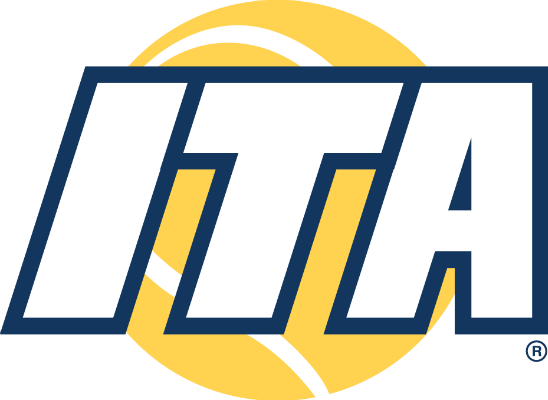



![Succession Success: Nadia Abdala, Head Women’s Tennis Coach, University of San Diego [Coaches Podcast]](https://wearecollegetennis.com/wp-content/uploads/2024/02/Coaches-podcast-Graphic-Nadia-Abdala-218x150.jpg)
![Special Episode: Ask Me Anything with ITA COO Dave Mullins [Coaches Podcast]](https://wearecollegetennis.com/wp-content/uploads/2024/01/Coaches-podcast-Graphic-Ask-Dave-Anything-218x150.jpg)
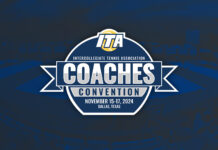




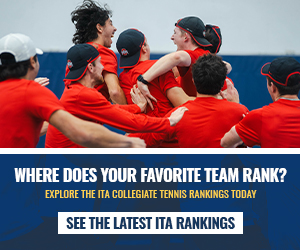

Thank you for this informative article. Please also consider a Professional Tennis Management (PTM) program as a great preparation for becoming a college coach. There are both undergraduate and graduate programs. We have a graduate program in PTM and coaching at Bridgewater State University.